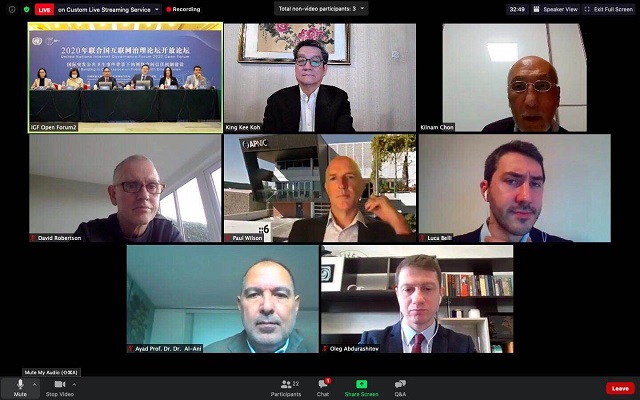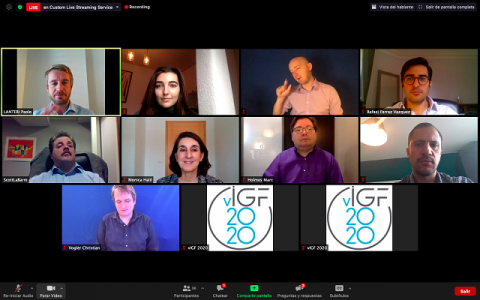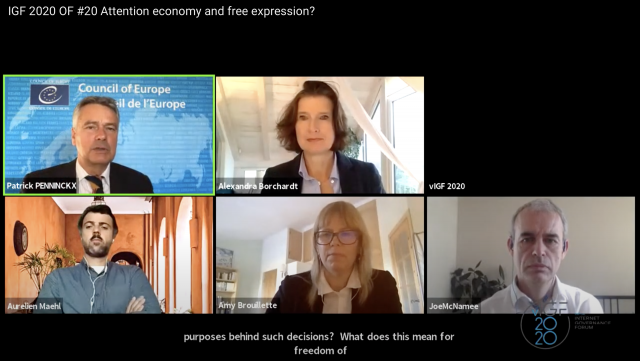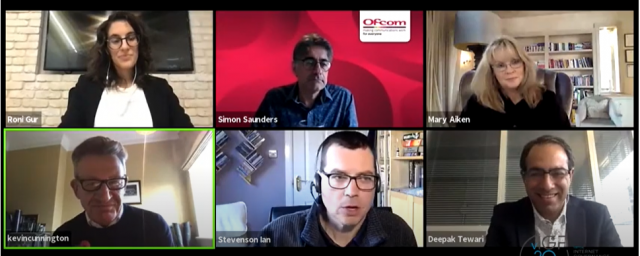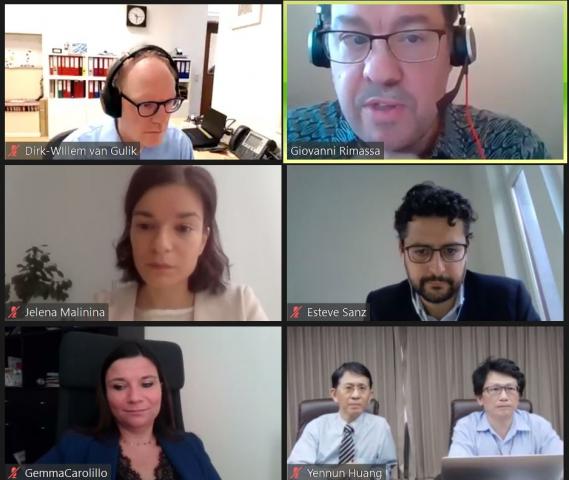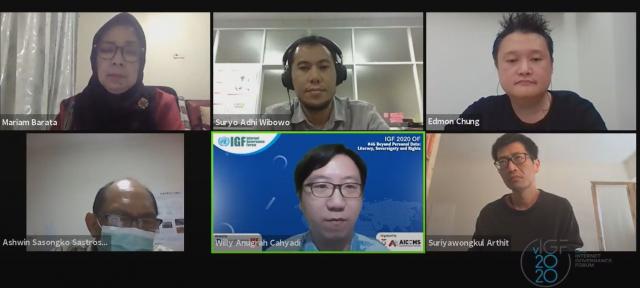With the rapid development of digital transformation, every country develops their ICT Infrastructure, as a result, the Internet access is enjoyed by more and more people at almost every corner of the world. At the same time the applications and contents in the Internet are highly used by those who already have the access. In addition, Operators of these Applications and Contents are not necessarily based in the country, but can be anywhere in the world. Most of the operators will ask the users’ data, for various purposes. Some of these data might be personal data of the users. With the developments of cloud system, the operators might store all data in their possession at Data Centers anywhere in the world too.
It is worth noting that the Covid-19 pandemic, has even pushed the digital transformation further. Previously, many digital activities, including online meetings for example, were carried out mainly in order to have higher productivity and efficiency. Today, it is considered primarily to protect ourselves from Covid-19 virus infection. Anything else, including higher productivity, can follow afterwards.
With the increased problems of personal data leakage, hacking, or perhaps even sold personal data by the operators, the awareness of Personal Data protection is increasing significantly. This is followed by various regulations developed by various countries to protect their citizens’ personal data. EU’s famous GDPR for example, is studied across the globe including in Indonesia, which currently is preparing the country’s personal data Act.
With the above global developments as the background, the big theme of this open forum is taken as Beyond Personal Data: Literacy, Sovereignty and Rights. Two subjects will be discussed under this theme, i.e.:
1. Internet Governance:
This topic has been discussed since the first WSIS in 2003, followed by the study by the UN WGIG that was then presented in the second WSIS in 2005. It was from the discussion in 2005 that IGF was then formed.
Based on various discussion in this topic which have been carried out in several international meetings, then the first subject to be discussed in this Open Forum is to review the various crucial aspects of Internet Governance and the possibility to further develop a globally acceptable Internet Governance in order to protect important data, including personal data. Even the current global development such as the introduction of some nationwide INTRANet might be partly triggered by the plan to protect those data. If this development goes further, a single global network for Internet might be the thing of the past. Hence, a discussion on a globally acceptable Internet Governance is extremely necessary.
In this first subject, several aspects will be discussed further, including but not limited to response to these questions:
- With Schrems II decision, US Clean Network Executive Order, Internet policy seems to deviate from a one global Internet dream, what should we expect come out from such attitude to personal data protection? Should we be prepared with Internet division based on country’s sovereignty?
- Such policies often being justified to serve public interest and protect national security, but that is not often the case, so how the implementation of multi-stakeholder principle in Internet governance can help to balance the dominance of a stakeholder in creating Internet policies that hamper a one global Internet affecting cross-border data transfer?
2. Digital Economy Ecosystem:
There is a necessity to develop global digital economy and, at the same time, regulate the digital economic ecosystem ensuring the global development will benefit all countries equally. It has to be noted, that the operators of applications and content, while they are holding the users’ some personal data, are not necessarily in the users’ country. In addition, currently, data is considered the new oil, which means personal data is a highly valued asset. This asset however is also held by the operators.
It is imperative for every country to protect their national data as well as their citizen’s personal data in the Internet, which are held by the Applications and Content Operators. At the same time the country also needs to open their cyberspace internationally for digital economy development. It means that the data, while it might be circulated around the globe and handled by various operators, must be protected. Otherwise, countries that cannot protect their data might lose in the global digital economic development.
Due to these facts, this topic will discuss the following questions:
- What are the reactions from industries to the emergence of various digital policies that eventually increase compliance and operational cost? Some even sees that certain policies such as data localization and data transfer restriction are difficult to be implemented.
- Additionally, how the stakeholders guarantee exactly that Internet based digital economy development activities, especially with data it collects, could benefit countries with less technological advancement? These countries suffer from digital divide and technological gap which are still struggling economically and at the same time also need to protect their strategic data and their citizen’s personal data. Most of the benefits will be in the hand of those who hold the data.
Online Moderator:
• Suryo Adhi Wibowo, AICOMS, Telkom University
• Co-moderator: Larasati Muslikhah Famarsari, AICOMS, Telkom University
Rapporteur:
• Willy Anugrah Cahyadi, AICOMS, Telkom University
• Co-rapporteur: Faisal Budiman, AICOMS, Telkom University
Overall Advisor During the Forum:
• Bhredipta Socarana (ID-IGF)
